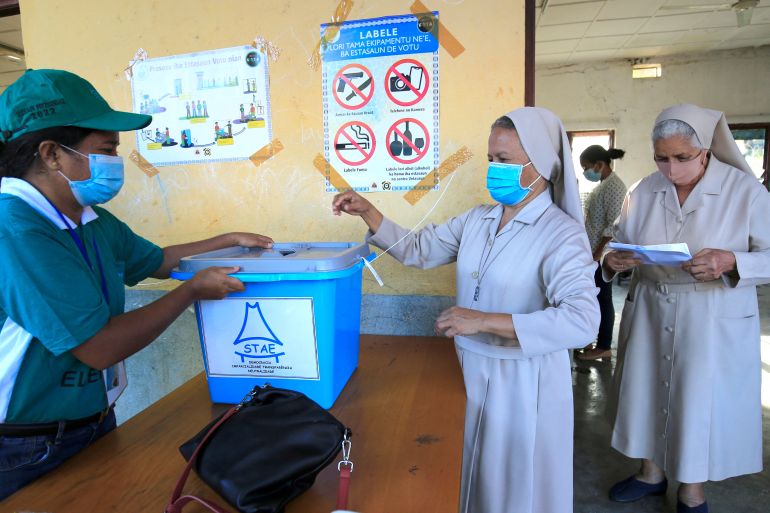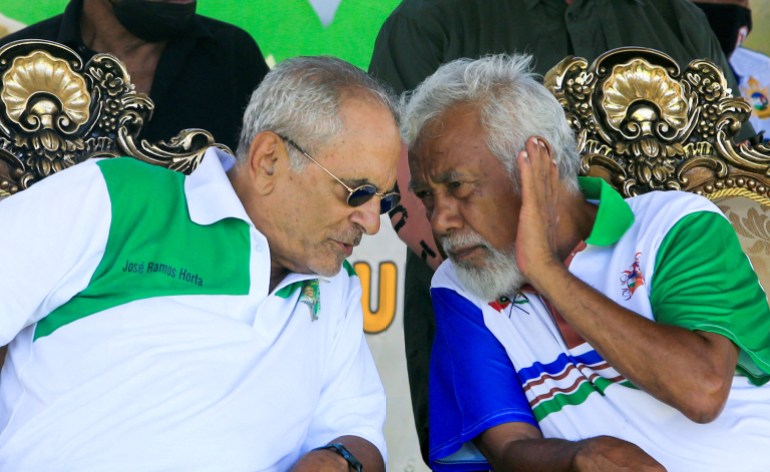East Timor chooses new president amid political deadlock
16 candidates, including former leader and Nobel prize winner Jose Ramos-Horta, are vying for office in Southeast Asia’s youngest country.

Voting is under way in East Timor, as Asia’s youngest nation holds its fifth presidential election since independence amid concerns over political stability and economic security.
The 16 presidential hopefuls include former resistance fighter and incumbent President Francisco “Lu Olo” Guterres, as well as independence figure and Nobel Peace Prize laureate Jose Ramos-Horta, and a former Catholic priest.
Keep reading
list of 4 itemsAt least 113 killed in Indonesia, E Timor floods, landslides
Xanana Gusmão condemned over visit to paedophile priest
How tiny Timor-Leste kept the coronavirus at bay
At polling booths in the capital Dili, Timorese donned masks and queued patiently to vote.
“We must choose a new generation so that we can build this country,” Jorge Mendonca Soares, 42, said of his desire for change in the country, which is also known as Timor Leste.
While the nation’s independence figures still dominate the field, for the first time there are also four female candidates, including deputy prime minister Armanda Berta Dos Santos.
A recent poll by the national university showed that Ramos-Horta, 72, former defence forces commander Lere Anan Timur and Guterres are the favourites.
Polls close at 3pm local time (06:00 GMT), with early indicators of who is leading the vote expected to come late on Saturday.
If no candidate wins an outright majority, the vote will proceed to a runoff on April 19 between the top two contenders.

Approaching 20 years since independence after the end of a brutal occupation by Indonesia, East Timor has for long spells struggled with political instability.
After the last elections in 2018, Guterres refused to swear in some ministers from the National Congress of the Reconstruction of East Timor (CNRT), a political party led by former Prime Minister Xanana Gusmao, who also served as president of the country for some time.
Ramos-Horta, who is backed by Xanana’s CNRT party, said earlier this week he was running because he felt the current president had “exceeded his powers”.
In East Timor’s political system, the president appoints a government and has the power to veto ministers or dissolve parliament.
During a recent election debate, Guterres pledged to ensure peace and stability, defend East Timor’s sovereignty and follow the constitution if he won a new term.
In a country heavily dependent on dwindling supplies of oil and gas, economic diversification and the role of young voters have also been key election issues, with an estimated 20 percent of voters reaching the voting age of 17 and casting their ballot for the first time.
First-time voter Marco de Jesus, 17, said he felt nervous but relaxed after help from polling staff.
“I feel proud to have carried out my function as a voter,” he said, speaking outside a polling station on Dili’s waterfront.
“I hope my choice can bring positive and useful change.”